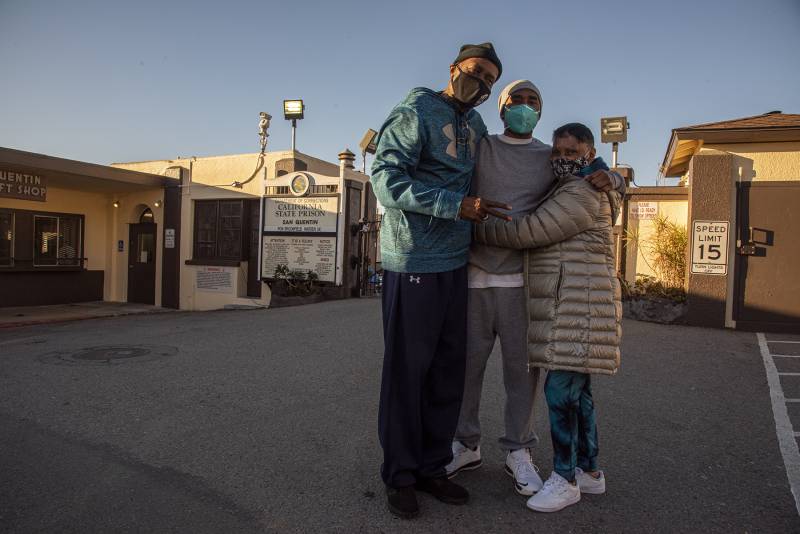Kennard Love, from San Jose, was one of the inmates who quickly rose to the top of the list of eligible participants. In 2007, at the age of 19, he was convicted of multiple armed robberies and sentenced to 28 years in prison.
At San Quentin State Prison, he earned associate’s degrees in business, behavioral and social science, and math and joined The Last Mile program, which teaches computer coding to prisoners.
Working with Silicon Valley De-Bug, a criminal justice reform organization that helps support incarcerated people, Blout’s group advocated for Love, and in December 2020, the Santa Clara DA’s Office recommended to a court that he be resentenced. Within days, he walked out prison, on parole.
“He decided to make a change in his life,” said Santa Clara County District Attorney Jeffrey Rosen, who oversaw the resentencing effort. “I want to reward and incentivize other inmates to make that change, because that change is good for them and it’s good for our community, because somebody who’s now not a criminal, not robbing, not stealing means that there are fewer crime victims.”
Rosen’s office has successfully petitioned to have 12 people resentenced since 2019 – a relatively modest figure that he said reflects the time it takes to carefully evaluate cases and do thorough risk assessments to guarantee public safety. And despite the inherently politically fraught business of releasing people from prison early, particularly those convicted of violent offenses, Rosen said he hasn’t yet faced much pushback.
“Of course, this isn’t something we do lightly. We talk to victims’ families,” Rosen said. “And sometimes victims are very supportive of the early release. Sometimes they don’t care so much one way or another, they’ve moved on. And sometimes they’re concerned. I haven’t had a victim say, ‘Oh, absolutely not. That person should rot in prison forever.’ ”
The resentencing program, Rosen added, is a validation of his job as a prosecutor.
“Our commitment is to do justice. And it doesn’t end after the conviction,” he said. “And while there certainly are cases we prosecuted where we think a person was not sentenced to enough time in prison, certainly we must acknowledge that there’s cases where someone was sentenced to too long in prison. And this law is an opportunity for us to redress that and to provide a fuller justice.”

